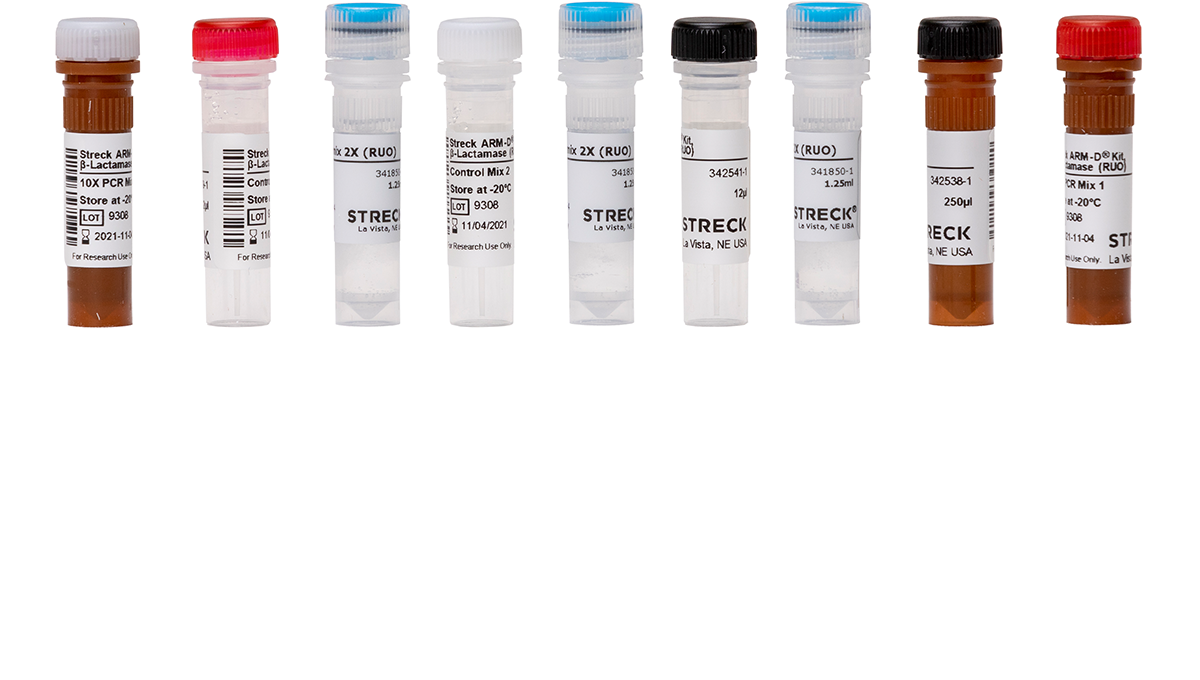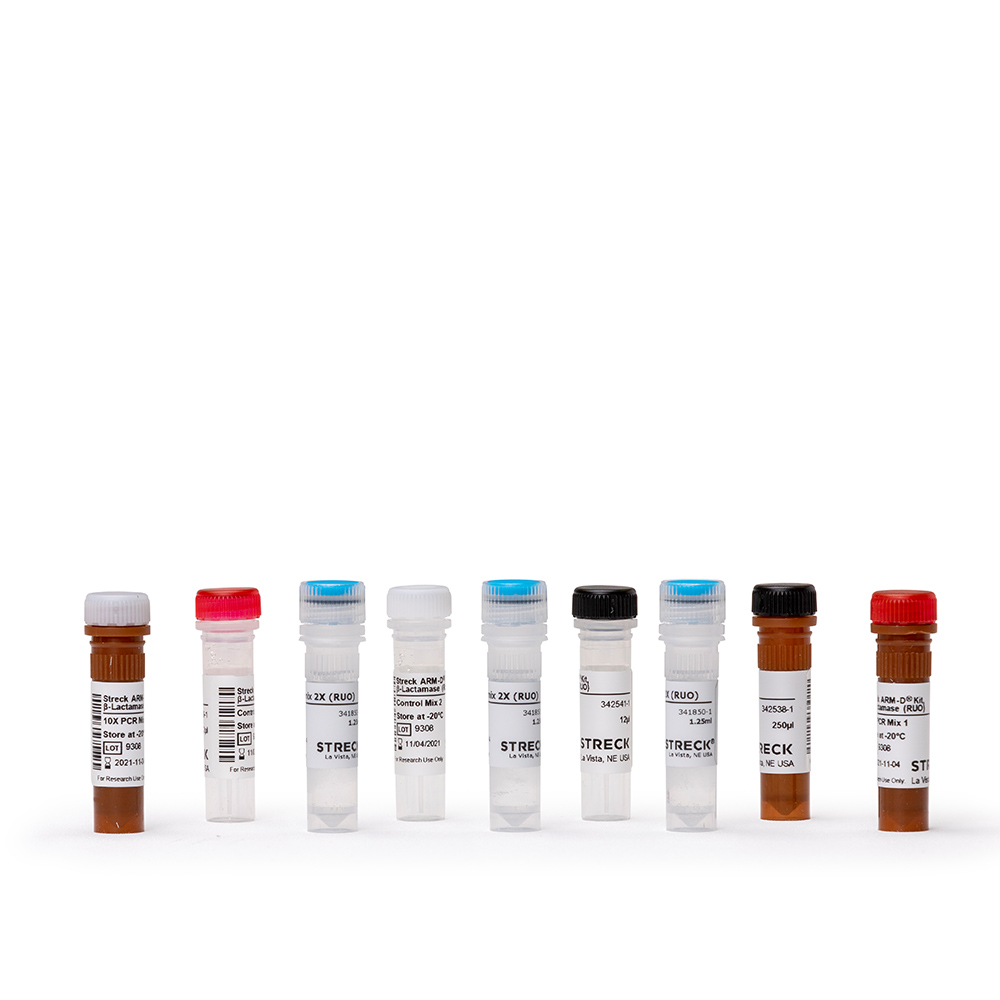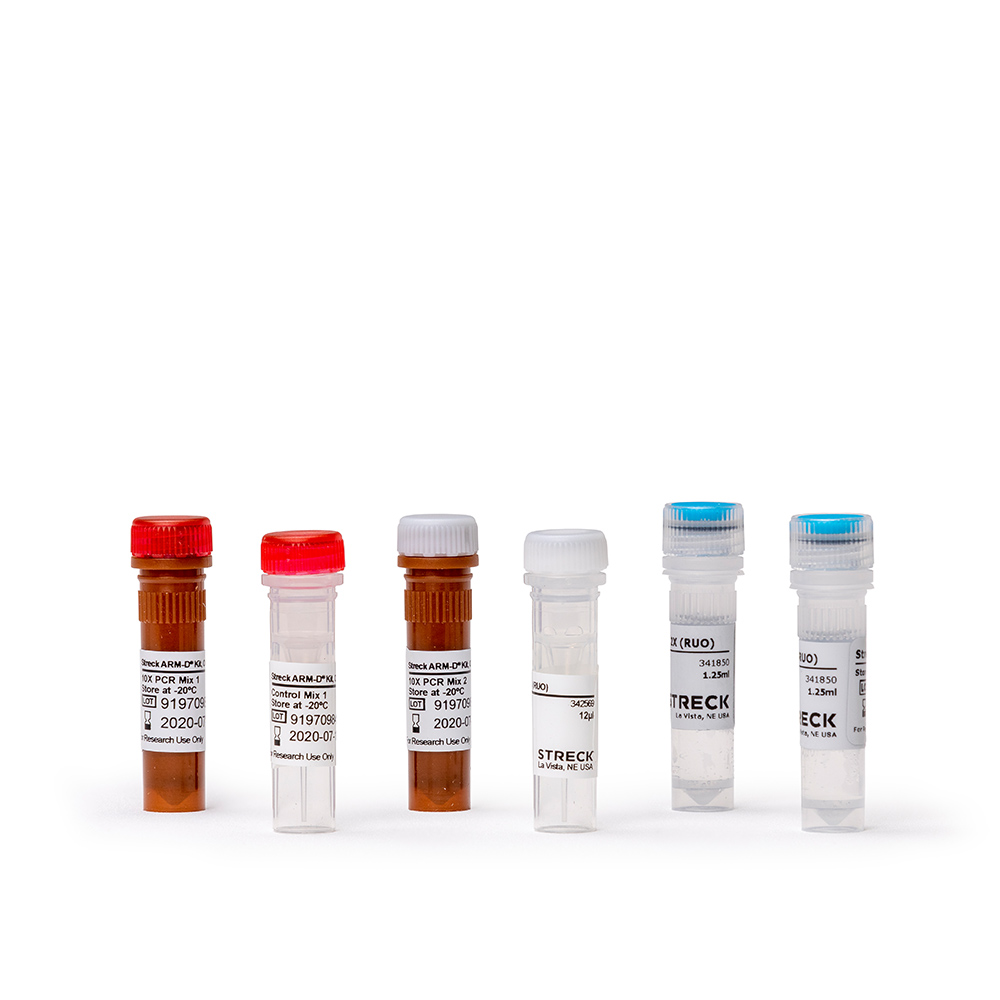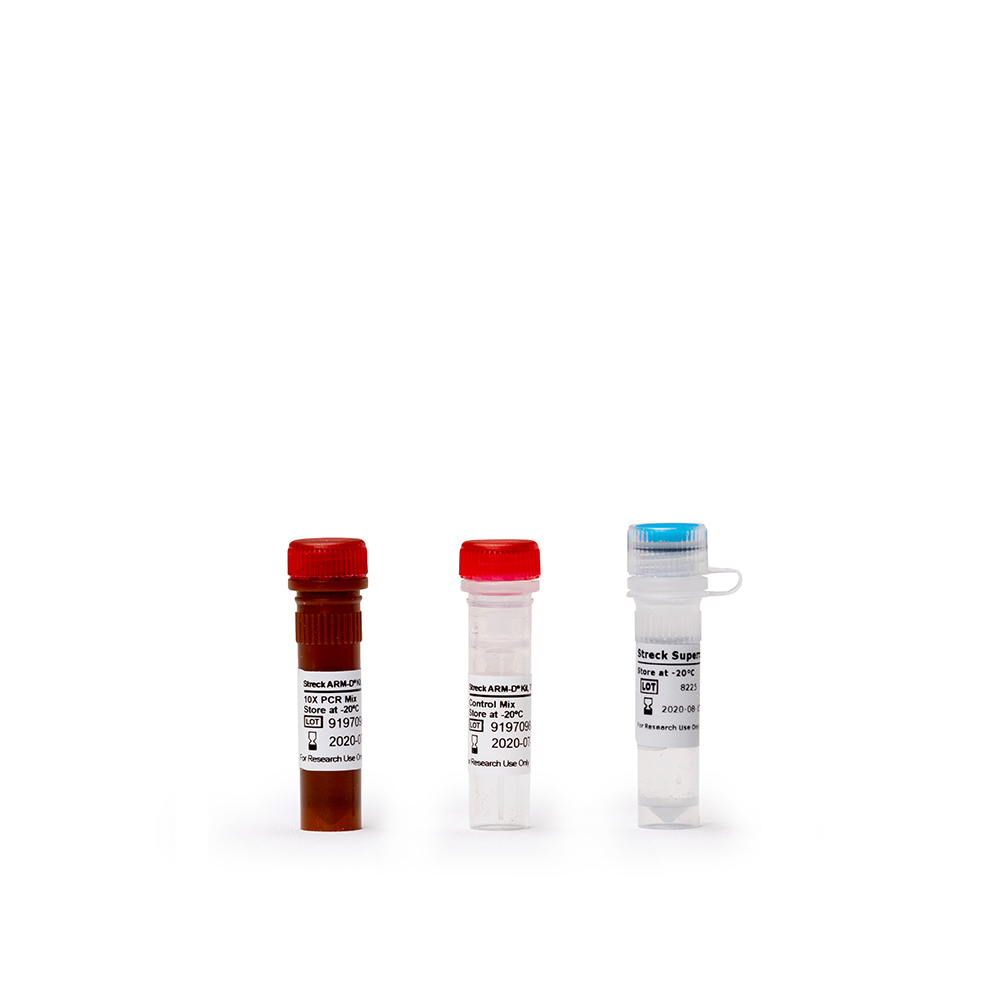ARM-D® Kit, β-Lactamase
The Streck ARM-D Kit, β-Lactamase is a multiplex real-time PCR kit for the rapid detection of β-lactam antibiotic resistance genes in Gram-negative bacteria. This comprehensive kit allows you to detect over 450 allelic variants in 9 clinically relevant carbapenemases, extended-spectrum beta-lactamases (ESBLs) and plasmid-mediated ampC gene families, KPC, NDM, OXA-48, IMP, VIM, DHA, CMY-2, CTX-M-14 and CTX-M-15.
Product Description
The ARM-D Kit, β-Lactamase is part of a family of comprehensive, multiplex real-time PCR kits that detect over 1,000 antimicrobial resistance (AMR) gene variants from 26 different gene target families. Streck ARM-D Kits provide a rapid detection strategy for monitoring β-lactam antibiotic resistance. With these kits, your lab can improve surveillance, aid antibiotic stewardship programs and support infection control programs…
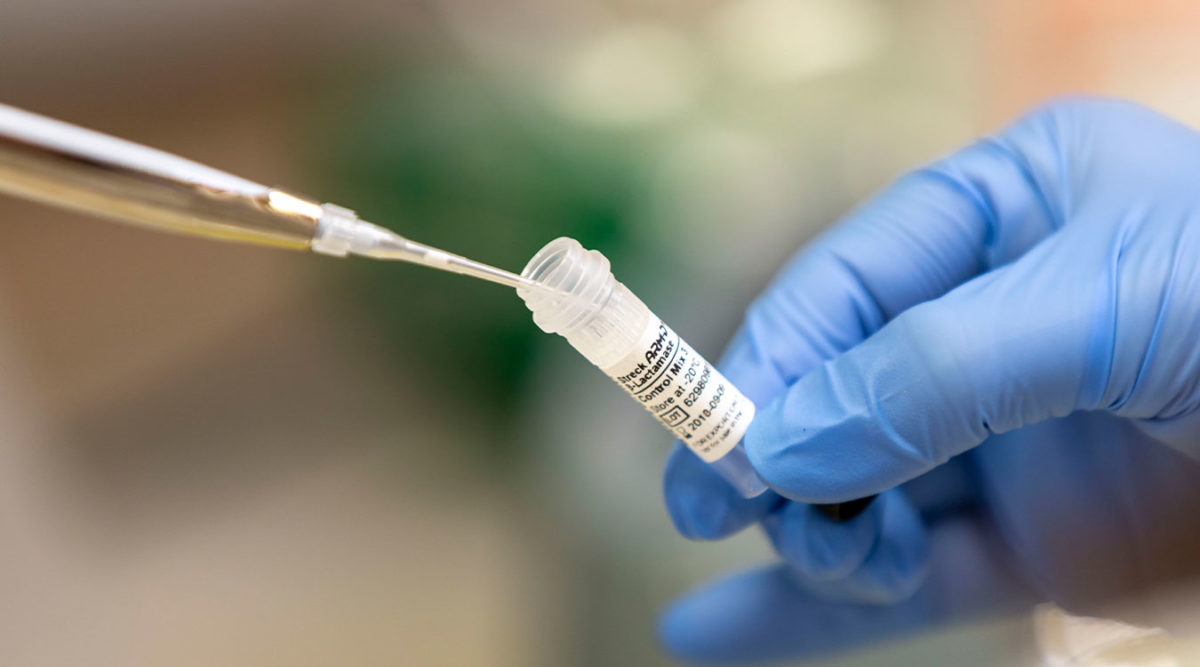
For Research Use Only. Not for use in diagnostic procedures.
A CE version of this kit is also available.
Features
- Detects over 450 allelic variants in the KPC, NDM, OXA-48, IMP, VIM, DHA, CMY-2, CTX-M-14 and CTX-M-15 gene families
- Compatible with most 4-channel real-time PCR thermal cyclers
- Protocol can be completed in less than one hour
- Contains positive controls for each gene target
- Includes a premixed 2X master mix (DNA Polymerase, dNTPs, MgCl2 and reaction buffer)
Benefits
- Detects gene variants not covered by cartridge-based kits
- Identifies resistance mechanisms before susceptibility results are available
- High degree of sensitivity and specificity ensures reliable and accurate results
- Reduced cost per sample compared to cartridge-based methods
Ordering Information
| Description | Catalog Number |
|---|---|
| Streck ARM-D Kit, β-Lactamase RUO | 250045 |
| Streck ARM-D Kit, β-Lactamase CE | 250047 |
Order ARM-D Kit, β-Lactamase today
New customers
Existing customers
International customers find a distributor
Citations
Resources
Instructions (IFU)
SDS
Product Information
Application – Technical Notes
- Streck ARM-D Kits Brochure PCR Detection Gene Variant Coverage Streck vs. Cepheid
- ARM-D Kits – Technical Note – A Multiplex Real-Time PCR Assay for Identification of Multi-drug Resistant Gram-negative Pathogens
- ARM-D Kits – Technical Note – Plasmid-mediated Beta-Lactamases Nomadic Microbial Assassins Lurking
- Streck ARM-D Kits (RUO) Data Acquisition & Analysis Guide – Applied Biosystems 7500 Fast
- Streck ARM-D Kits (RUO) Data Acquisition & Analysis Guide – Applied Biosystems 7500 Fast Dx
- Streck ARM-D Kits (RUO) Data Acquisition & Analysis Guide – Bio-Rad CFX96
- Streck ARM-D Kits (RUO) Data Acquisition & Analysis Guide – Applied Biosystems QuantStudio 7 Flex Real-Time PCR System
- Streck ARM-D Kits (RUO) Data Acquisition & Analysis Guide – Real-Time PCR Platform QIAGEN Rotor-Gene Q 5plex System
- CE IVD Streck ARM-D Kits Data Acquisition & Analysis Guide – Applied Biosystems 7500 Fast
- CE IVD Streck ARM-D Kits Data Acquisition & Analysis Guide – BioRad CFX96
- CE IVD Streck ARM-D Kits Data Acquisition & Analysis Guide – Applied Biosystems QuantStudio 7 Flex Real-Time PCR System
- CE IVD Streck ARM-D Kits Data Acquisition & Analysis Guide – Real-Time PCR Platform QIAGEN Rotor-Gene Q 5plex System
Looking for an older document? Click here for archived assays and certificates.
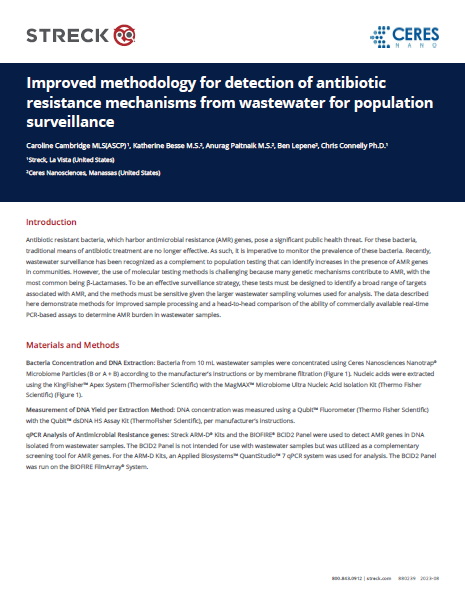
Technical Note
Combining Nanotrap Particle-based capture and concentration with qPCR analysis using the Streck ARM-D Kits creates a consistent and reliable protocol for wastewater AMR surveillance.

Learn why the Houston Health Department is making the switch to Streck ARM-D Kits
Flor Hudson, Staff Microbiologist, describes the validation of the Streck β-Lactamase kit for use in screening bacterial isolates…
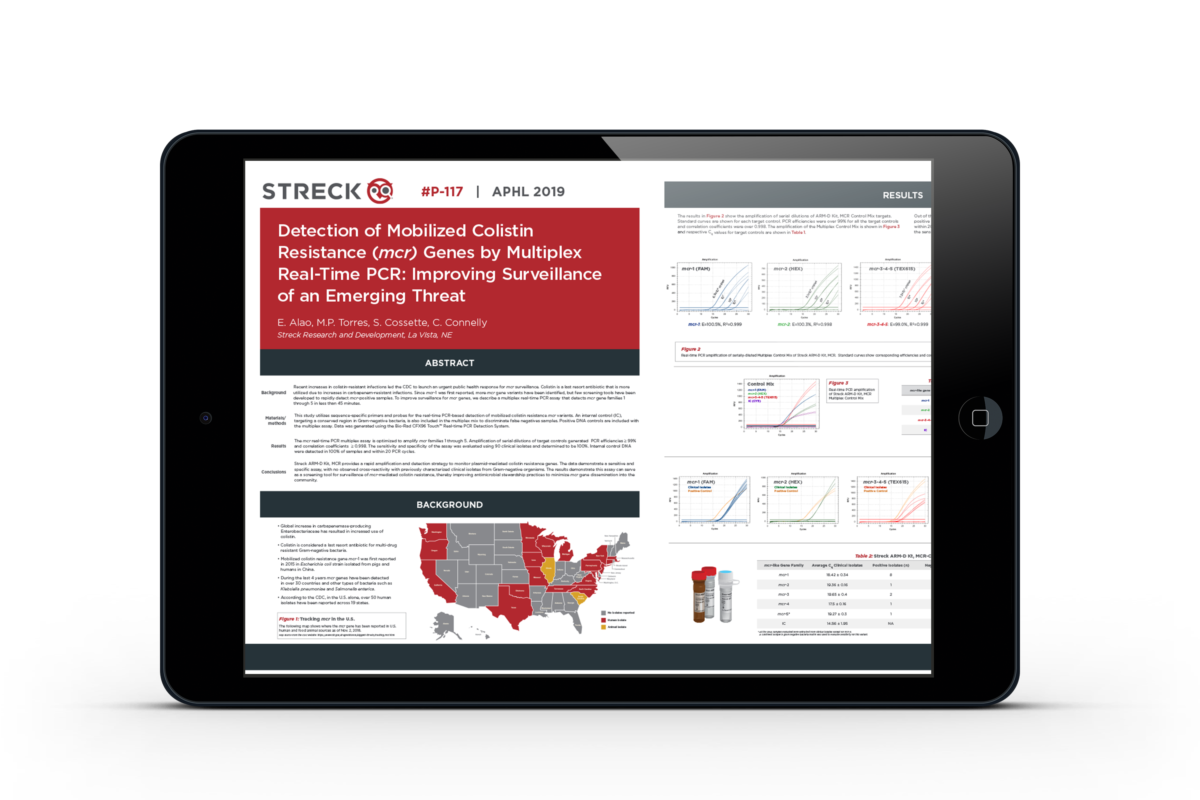
A surveillance tool to track the spread of mobilized colistin resistance
Recent increases in colistin-resistant infections led the CDC to launch an urgent public health response for mcr surveillance…
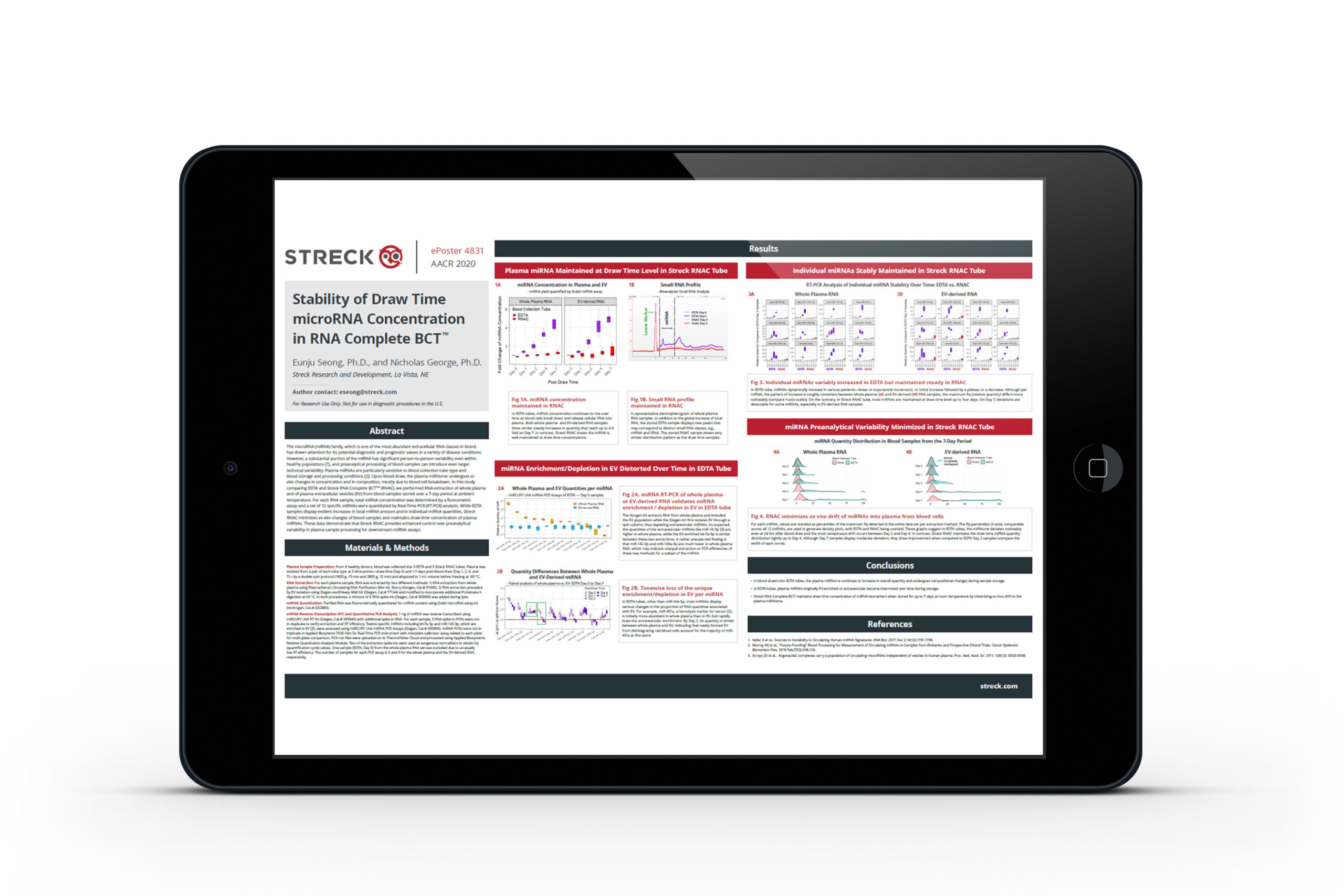
Detect AMR genes from extracts of axillary, throat and rectal swabs
Rapid, comprehensive screening of incoming patients is essential to overall patient health and antibiotic stewardship. Dr. Kathy Mangold presents the utility of Streck ARM-D kits…
Molecular Products
With full-process controls and antibiotic resistance kits, Streck has the products to help you streamline your molecular diagnostics testing, aid antibiotic stewardship and ensure positive patient outcomes.
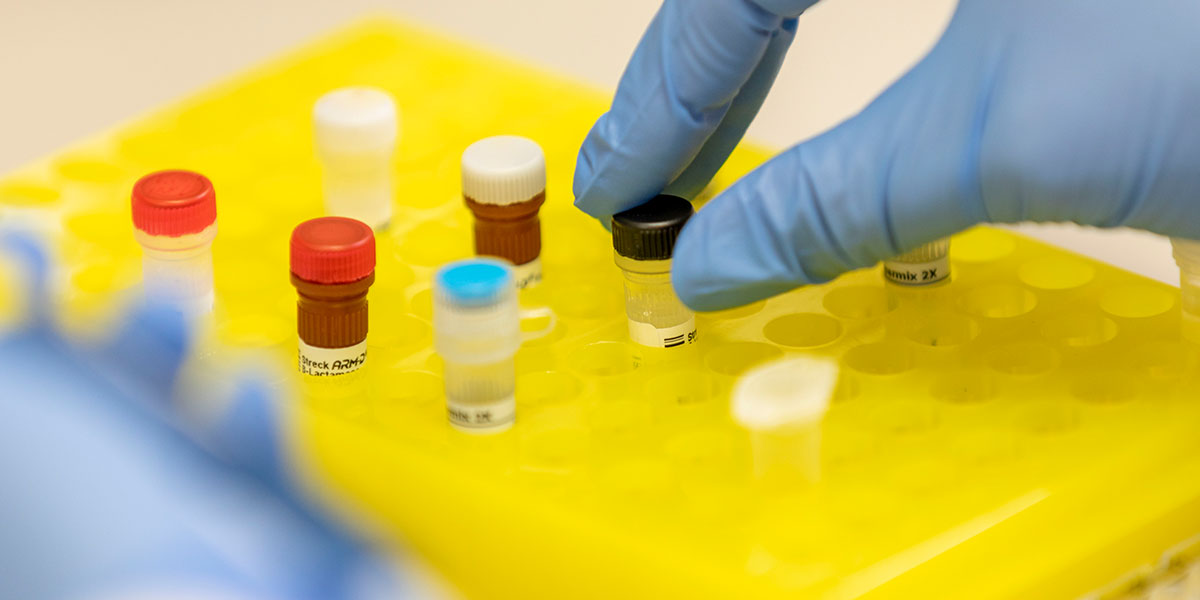
The latest from the blog


New antibiotic fights antimicrobial resistant bacteria

